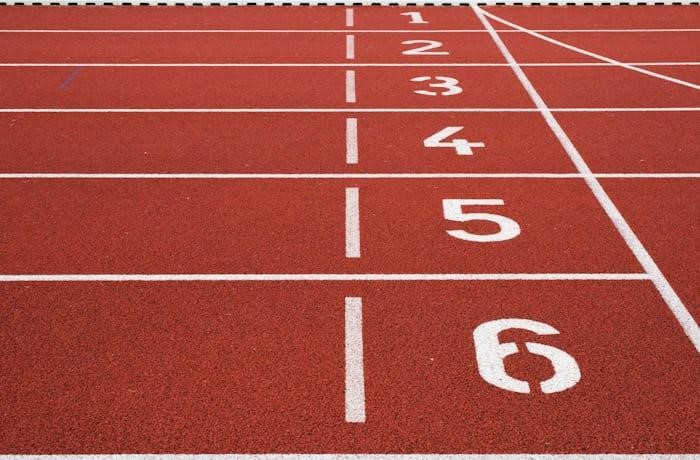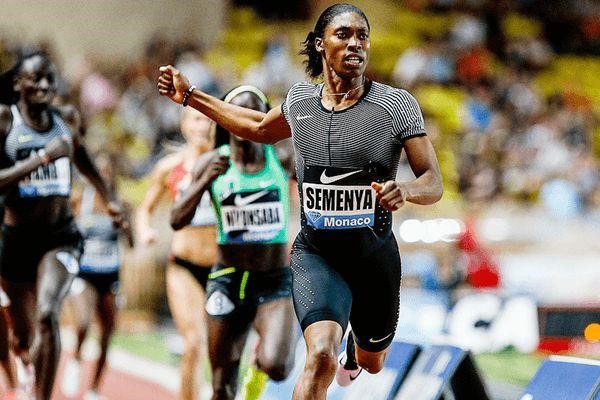Groundbreaking Workshop on AI and Technology-Facilitated Gender-Based Violence at AWiM24
Trending
Saturday May 31, 2025
Trending

The regulations governing gender eligibility in sports reflect the influence of societal and cultural perceptions of femininity and masculinity, impacting athletes’ behaviors and experience. Eligibility rules have to a greater degree affected African female athletes due to their naturally high testosterone levels or variations in sex development. Critics argue that these regulations lack scientific basis and perpetuate harm and racial bias. Despite the International Olympic Committee’s (IOC) 2021 framework on fairness, inclusion, and non-discrimination based on gender identity and variation, athletes such as Caster Semenya, Francine Niyonsaba, and Margaret Wambui faced exclusion because of the International Association of Athletics Federations (IAAF) policy on hyperandrogenism. According to World Athletics, The rules and regulations by the IAAF, which was published and came into force for all International Competitions on 1 May 2011, provide for these key principles:
33-year-old Caster Semanya, an athlete born with ‘Differences in Sexual Development’ (DSD), has an elevated level of testosterone, a hormone that can increase muscle mass and strength. In a CNN publication, the two-time Olympic champion described taking testosterone reduction drugs as ‘hell’, emphasising that no woman should go through the process.

Photo Credit: The Science of Sport
Some argue that such policies have been widely condemned for potentially prioritising European standards of femininity, thereby spreading racism and misogyny in sports. The impact of these gender eligibility rules on African female athletes is a matter of profound concern, encompassing unequal targeting, instances of enforced medical interventions or exclusion from competition, support of European ideals of femininity, lack of scientific foundation, and adverse effects on athletes’ health and wellbeing. Others believe that the IAAF’s stance and on athletes with DSD are necessary.
African Women in the Media, (AwiM) had a conversation with Finland based Nigeria born Coach Victor Uzoho , who was the Goalkeeper Coach of Finnish Women Premier League side, Tips Naiset and the Only male black Coach in a female team who led them to a two-silver medals victory in 2020.
Uzoho expressed concerns that the IAAF’s policy on athlete participation may be discriminatory: “the IAAF stood on its ground that athletes should be able to compete on the same playing field or level but physiological differences expressed in terms of gender in balance may be a factor that limits participation as opposed to the physiology of other competitors. Can it then be viewed as a discriminatory policy? I think the authorities should endeavor to let the norms and rules of participation be open to all aspiring and current athletes and prior medical and testosterone tests be conducted before any major event.”

Finnish Women Premier League side Tips Naiset. Photo credit: Victor Uzoho
The Sport Management Consultant and a UEFA-licensed coach, argued that inclusivity and equity in sports can be promoted through an open and fair selection process. He added that “societal expectations surrounding femininity intersect and cause disparities in financial benefits for women in sports participation, which can be addressed by offering attractive and equal economic benefits.”
Chidiebere Ezeani, Media and Communications Officer of the Nigeria University Games Association who shared her opinion with AwiM News said “gender-specific rules shape an experience, while some people would think that Caster Semenya is being restricted from her experience in sport, I think it ensures the ability of women who do not have the XY chromosome in their gene like Caster Semenya to also be respected. These rules respect the natural ability of women and we need the rules to enhance the experience of women in sports, some rules have to be female-centric.”
She further emphasised that gender harassment and discrimination in sports hinder women’s participation, which enables inequality and have long-lasting effects on their confidence. To address this, we need to increase the number of women in sports leadership, coaching, and enforcement, celebrate women’s achievements to inspire the next generation, challenge societal norms and stereotypes, and advocate for women’s opportunities in sports. Sport encompasses a wide range of benefits, as it teaches self-control, discipline, and resilience to succeed. It does not have to be at a professional level alone, it empowers the girl child to reach her full potential.
To sum it all, gender eligibility rules in sports must be re-evaluated to ensure inclusivity and equity. The current regulations harm African female athletes, encouraging and enabling racial bias and discrimination. A more scientific and nuanced approach is needed. By revising these rules and addressing societal norms, we can create a more just and empowering sports environment for all.
We’re not gonna spam. We’ll try at least.

Copyright 2020. African Women In Media
Copyright 2020. African Women In Media
Recent Comments